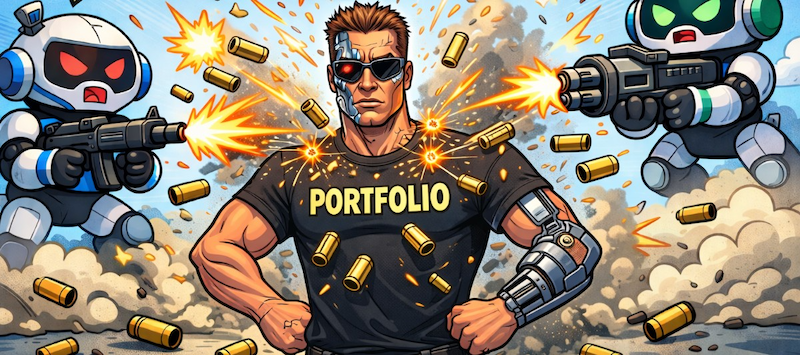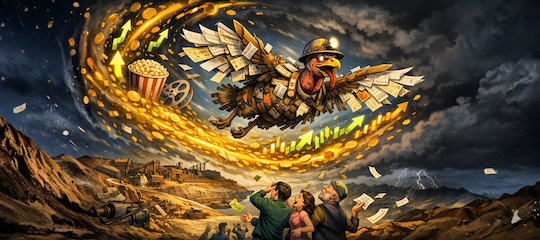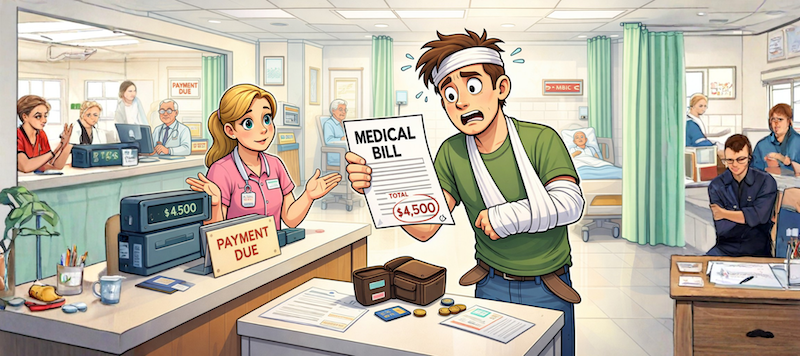Posted February 27, 2022
By Sean Ring
The Rude’s Guide to Russia/Ukraine
- Channel your inner Kipling: It’s time to keep our heads about us while everyone is losing theirs.
- We’ll define a few simple agreements for a framework.
- When your friends send their “thoughts and prayers,” you’ll know better.
Happy Monday!
It’s a rainy day here in Cebu, as we’re in our house for the final few days.
We’re off to Samar, the island where Pam’s parents live, for three weeks.
I hope to send you some goodies and tidbits about the place. It really is the sticks out there.
But beforehand, I’m still here in my beloved coworking space, my chubby digits smashing the keyboard as fast as they can.
The hullabaloo in Ukraine is serious - and deserves serious discussion - but the pearl-clutching shock of even the “professional” class is getting up my nose.
It displays not just an ignorance of history but an active avoidance of it. And once you understand the recent history of the situation, what’s going on now isn’t much of a stretch.
Unpopular though that may be, it’s essential to grasp the facts to have constructive conversations about it.
What I won’t go into is the history of Ukraine with respect to Russia. The subject is too big, and I’m not a specialist in it by any means.
I don’t think it’d make much of a difference to my view anyway.
Putin may think Ukraine is a part of Russia, but I think shared history doesn’t mean a shared state, government, or nation.
And that applies to all people on the planet.
Though I joke about having a revolution over a 2% stamp tax while now paying upwards of 40% of your money to The Swamp, I don’t think the US should be under the UK’s yoke.
And I certainly don’t think the EU is one country, though are they using this crisis to pretend it is!
With all that aside, let’s look at the facts. I happily invite you to look up any and all things I write.
I’ve done everything I can to ensure you get the accurate facts. But as The Great Communicator once said, “Trust, but verify.”
Let’s get into it.
The Wolfowitz Doctrine
The Pentagon rewrote this disaster of a document to soften its insane imperial intonations. Heck, all that was missing was a bald villain in a Mao-collared shirt stroking a white cat.
The original part about Russia is this:
Our first objective is to prevent the re-emergence of a new rival, either on the territory of the former Soviet Union or elsewhere, that poses a threat on the order of that posed formerly by the Soviet Union. This is a dominant consideration underlying the new regional defense strategy and requires that we endeavor to prevent any hostile power from dominating a region whose resources would, under consolidated control, be sufficient to generate global power.
Notice how’s there nothing like, “How do we befriend a nation of immense human capital and natural resources?” “How do we integrate them into their rightful place in the West?” “How do we keep them away from any entanglements that might later harm us?”
Nothing of the sort. Just a staggeringly arrogant victory lap with no consideration for future relations.
But it gets worse…
The Budapest Memorandum
This piece of paper, currently as valuable as a ruble, stated the United States, Russia, and Britain committed “to respect the independence and sovereignty and the existing borders of Ukraine” and “to refrain from the threat or use of force” against the country.
When the Soviet Union broke up, Ukraine was left with many nuclear weapons.
A key priority of both the Bush and Clinton administrations and the Russian government was to get Ukraine to give up its nukes.
From the Brookings Institution:
Before agreeing to give up this nuclear arsenal, Kyiv sought three assurances.
First, it wanted compensation for the value of the highly-enriched uranium in the nuclear warheads, which could be blended down for use as fuel for nuclear reactors. Russia agreed to provide that.
Second, eliminating ICBMs, ICBM silos, and bombers did not come cheaply. With its economy rapidly contracting, the Ukrainian government could not afford the costs. The United States agreed to cover those costs with Nunn-Lugar Cooperative Threat Reduction assistance.
Third, Ukraine wanted guarantees or assurances of its security once it got rid of the nuclear arms. The Budapest Memorandum provided security assurances.
The Ukrainians took this as “the all-powerful unipolar hegemon United States will take care of us, and Russia is washed up and will never recover anyway.”
Of course, the Americans thought, “Well, if we don’t invade them, we’ve adhered to the letter of the agreement.”
The Brookings report, written by Steven Pifer, says much:
Washington did not promise unlimited support. The Budapest Memorandum contains security “assurances,” not “guarantees.” Guarantees would have implied a commitment of American military force, which NATO members have. U.S. officials made clear that was not on offer. Hence, assurances.
If you ever wonder why North Korea, Pakistan, India, and Iran will never give up their nukes, look no further than this memo.
“Not One Inch Eastward.”
Critical to understanding why Putin feels America betrayed Russia was America’s promise not to let NATO move one inch eastward.
M.E. Sorotte, who wrote the book - literally - on the subject, posted this excellent Twitter thread that saves me the trouble of explaining it.
https://twitter.com/e_sarotte/status/1474267715909001216
But from the introduction of her book, some intelligent old Americans like George Kennan and James Baker knew that NATO expansion would end in tears.
You can read about it here.
Crimea 2014
To be fair, it started with Dubya.
From under George W. Bush’s nose in 2008, “Pooty Poot” took the Georgian regions of South Ossetia and Abkhazia.
That let Putin know he could run wild.
Then in 2014, former community organizer Barack Obama did nothing but impose sanctions - which we now know helped Russia become the world’s largest wheat exporter - when Russia took Crimea.
Funnily enough, his “agent” and “bootlicker” Donald J. Trump didn’t let him take anything at all.
Some left liberals surmise this because they were buddies. Those people are brain-damaged.
Allegedly, Trump threatened Putin - to his face - that he would bomb Moscow if Putin moved on Ukraine.
It would explain quite a bit.
The Minsk Conundrum
The Minsk Agreements were two sets of points to bring peace between Ukraine and Russia.
But they never worked because the two countries saw the agreements in entirely different lights, now called the Minsk Conundrum:
Ukraine sees the 2015 agreement as an instrument to re-establish control over the rebel territories.
It wants a ceasefire, control of the Russia-Ukraine border, elections in the Donbas, and a limited devolution of power to the separatists – in that order.
Russia views the deal as obliging Ukraine to grant rebel authorities in Donbas comprehensive autonomy and representation in the central government, effectively giving Moscow the power to veto Kyiv’s foreign policy choices.
Only then would Russia return the Russia-Ukraine border to Kyiv’s control.
So they were doomed to failure from the start.
Wrap Up
In this Rude, I’ve endeavored to give you the necessary framework to engage anyone on this subject.
Once you understand the realpolitik behind the fake news, thought and prayers, and outright lies, it’s easy to see how this was inevitable.
This is not to support Putin or to condone warfare. It’s to be better informed and to view what the lamestream media says with suspicion and skepticism.
Those brave Ukrainians fighting right now are in the middle of a storm over 30 years in the making.
I pray for a swift end to the bloodshed, but we know what prayers are worth.
Until tomorrow.
All the best,
Sean

Building an AI-Proof Portfolio
Posted February 24, 2026
By Sean Ring

Beware of Flying Turkeys
Posted February 23, 2026
By Matt Badiali

How Options Boss Stocks
Posted February 20, 2026
By Nick Riso

Investing is So Taxing!
Posted February 19, 2026
By Sean Ring

The Most Expensive Way to Go Broke
Posted February 18, 2026
By Sean Ring

